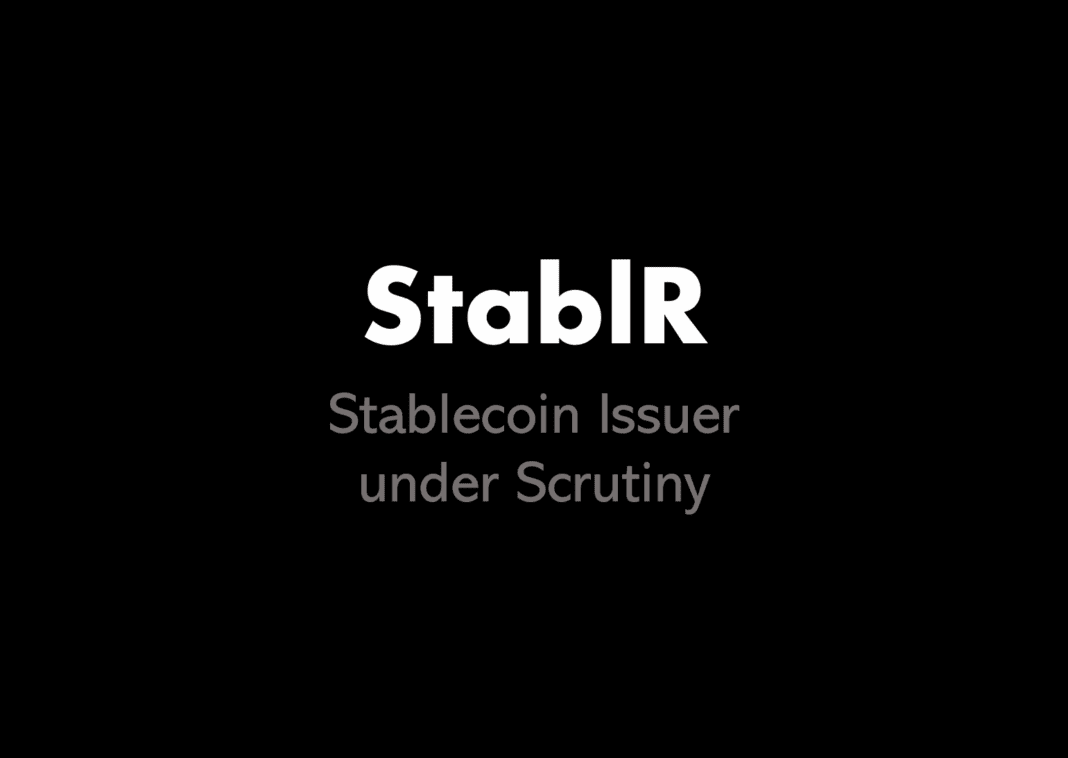StablR (website), a Malta-based stablecoin issuer regulated under the EU’s Markets in Crypto-Assets Regulation (MiCA), positions itself as a transparent and compliant player in the digital assets space. However, scrutiny of its leadership and disclosure practices reveals significant concerns about governance, regulatory adherence, and ethical transparency. Founded by Gijs op de Weegh (LinkedIn), former COO of the scandal-ridden payment processor Payvision, StablR’s white paper omits critical details about its CEO’s involvement in one of Europe’s largest cybercrime facilitation cases. This raises urgent questions about compliance with MiCA’s stringent disclosure requirements and the integrity of its regulatory approvals.
Gijs op de Weegh’s Role in the Payvision Scandal
Payvision, acquired by ING Bank in 2018, operated as a payment processor for fraudulent platforms linked to cybercrime networks, including those run by Uwe Lenhoff and Gal Barak. These platforms stole hundreds of millions from victims through fake brokerages and gambling schemes. Internal documents and criminal investigations confirmed that Payvision knowingly processed over €52 million in stolen funds in 2018 alone, ignoring compliance warnings and public fraud alerts.

As COO, Gijs op de Weegh oversaw operations during this period, including client onboarding and transaction monitoring. While Payvision’s CEO Rudolf Booker and other executives faced criminal convictions for violating Dutch anti-money laundering (AML) laws, Op de Weegh avoided prosecution despite being directly responsible for departments handling high-risk clients. The Dutch Central Bank (DNB) fined Payvision €330,000 in 2020 and filed a criminal complaint, citing systemic AML failures and “deliberate ignorance” of fraud signals. Payvision and ING later settled victim compensation claims totaling millions of euros.
MiCA’s Disclosure Requirements and StablR’s Omissions
Under MiCA, stablecoin issuers must publish a white paper that provides a “true, fair, and clear” representation of the issuer’s background, risks, and governance. Key obligations include:
- Transparency about leadership history (Annex I, MiCAR).
- Disclosure of past regulatory sanctions or criminal investigations involving executives.
- Full accountability for material omissions, which can lead to regulatory penalties or suspension of operations.
StablR’s white paper conspicuously avoids mentioning Op de Weegh’s tenure at Payvision, the DNB’s criminal complaint, or the millions in victim compensation paid by ING/Payvision. These omissions conflict with MiCA’s mandate to ensure investors and regulators can assess “all facts material to the crypto-asset.” By concealing this history, StablR jeopardizes its claim to regulatory compliance and undermines trust in its operations.
Regulatory and Ethical Implications
- Material Misrepresentation: MiCA requires white papers to disclose risks stemming from leadership’s past conduct. Op de Weegh’s oversight of Payvision’s illicit activities poses reputational and operational risks for StablR, yet these are absent from disclosures.
- Systemic Risk: As a licensed Electronic Money Institution (EMI), StablR’s stablecoins could achieve systemic importance. MiCA mandates heightened scrutiny for such entities, including audits of governance and risk management. The DNB’s findings about Payvision’s culture of non-compliance suggest unresolved questions about StablR’s controls.
- Investor and Partner Due Diligence: Potential partners and customers, including Tether (which invested in StablR in 2024), may face liability if StablR’s omissions later trigger regulatory action or litigation.
Critical Questions for Regulators and Stakeholders
- Why did the Malta Financial Services Authority (MFSA) grant StablR an EMI license without requiring disclosure of Op de Weegh’s Payvision ties?
- Does the DNB’s 2020 criminal complaint against Payvision’s board warrant reappraisal of StablR’s MiCA authorization?
- How can the EU ensure MiCA’s transparency rules are enforced when issuers omit material executive misconduct?
Conclusion
StablR’s emergence as a MiCA-compliant stablecoin issuer is overshadowed by unresolved ethical and regulatory failures from its CEO’s past. The omission of Payvision’s cybercrime facilitation and subsequent penalties from its white paper violates MiCA’s core principles of transparency and investor protection. Regulators must urgently investigate these disclosures, while potential partners and customers should demand full accountability before engaging with StablR. Without corrective action, MiCA’s credibility as a safeguard against financial crime risks erosion.
